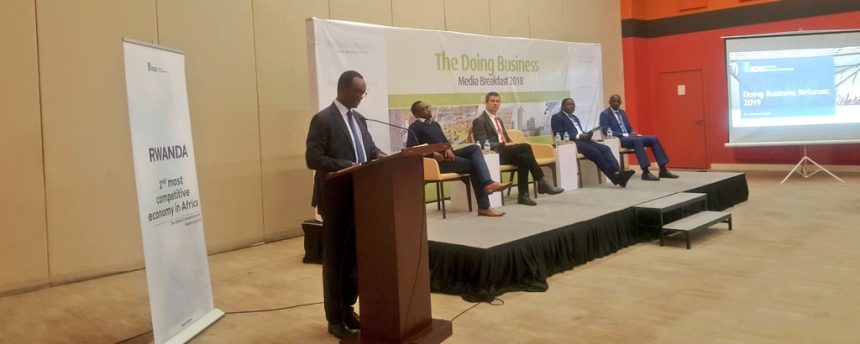The World Bank says that the Doing Business project has recorded over 3,188 regulatory reforms since its inception in 2006.
It says that from June 2, 2016, to June 1, 2017, for example, Doing Business recorded 264 regulatory reforms, making it easier to do business around the world; with 119 economies implementing at least one reform across the different areas measured by Doing Business.
Rwanda in particular, has implemented numerous business reforms over the last ten years, which saw the country improve from a global ranking of 150th in 2018 to 41st currently, and the 2nd easiest place to do business in Africa and 1st in mainland Africa and East Africa.
“This significant growth has led to Rwanda being recognized as the top global reformer of all time by the World Bank,” says Emmanuel Hategeka, COO of the Rwanda Development Board (RDB).
As a result, there has been increased investments and firms in the formal sector, translating into more and better jobs and a wider tax base.
In 2010, Rwanda attracted US$400 million in investments. The figure has grown by four folds. In 2017, the country registered US$1.6billion.
The number of businesses registered per year has also grown exponentially from 2,000 in 2009 to 13,000 in 2017.
These results have come at a price; hard work, mistakes, criticism, stalled projects, but also good fruits.
In this special report, we are looking at what motivates Rwanda and how it does it.
According to Louise Kanyonga, the Head of Competitiveness at RDB, “Rwanda is one of the most committed economies towards improving its business environment.”
She told Taarifa that, “The country sets ambitious reforms that typically take other countries several years to implement.”
What happens is that Rwanda takes bold moves of implementing the reforms in a single reform cycle, she explained.
More on why the country scores highly in the doing business reforms, Kanyonga explains that, “there is a strong political support across all levels of government; from the executive, to the parliament and to the judiciary.”
“It is very rare that you see this kind of harmony,” she says. “And whenever these kinds of interventions that are required, we all come together.”







